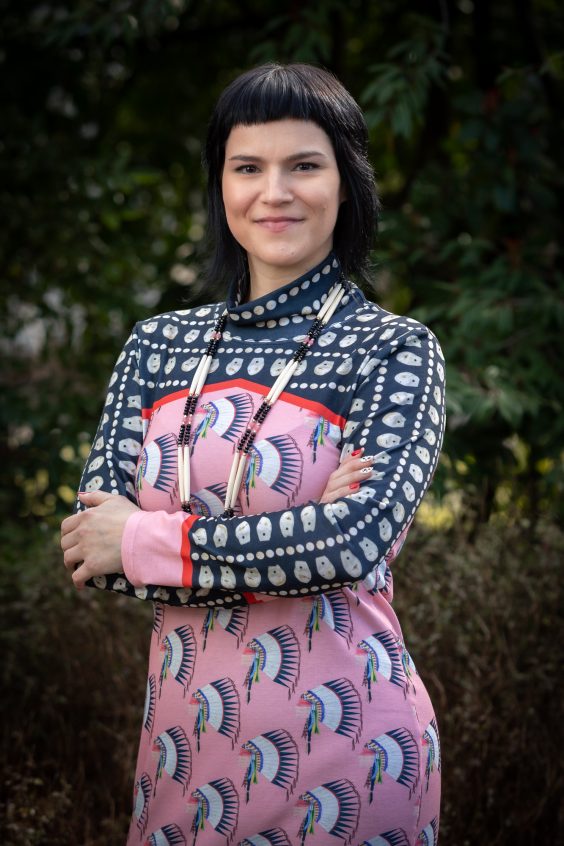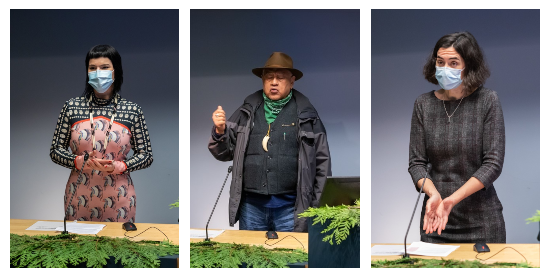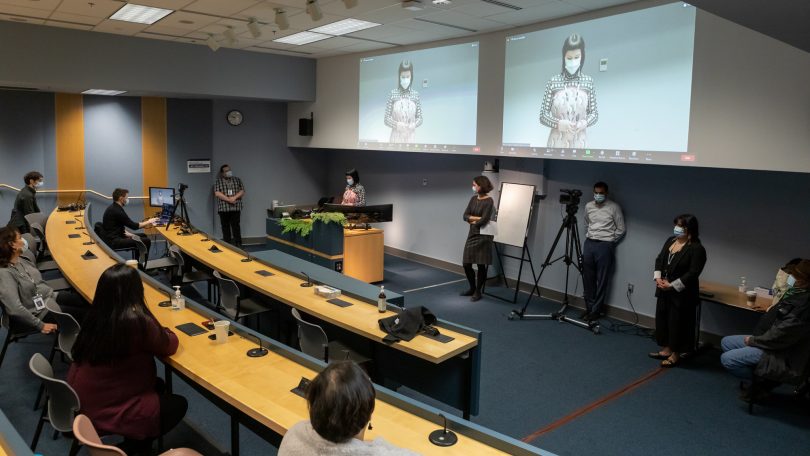The new Peer Support Program based at St. Paul’s Hospital will provide valuable expert staff to offer support between patients and health-care providers within the hospital’s Indigenous Wellness Program, say its organizers.
“We’ve never had Peers – that is, People with Lived/Living Experience (PWLE) – as regular staff before within the hospital footprint,” says Dr. Lindsay Farrell, who is Anishinaabe and the Director of Indigenous Wellness, Reconciliation & Partnerships at Providence Health Care. “The Peer Support Program has the potential to dramatically improve the care received by patients in the high-need areas of the hospital, creating safe spaces and emphasizing person-centred care.”
(Peers currently working at Providence, such as those in the Rapid Access Addictions Clinic, are provided by external organizations such as Positive Living, or are volunteers.)

The Peer Support Program team will serve as a resource for both patients and health-care providers by providing emotional support and patient advocacy, and promoting health-provider relationships that are trauma-informed and person-centered, and will help to create a safe space.
Hiring is currently underway for a full-time Peer Support Program Coordinator and two part-time Peer Support Workers who will form this program. They will work as embedded team members within the Indigenous Wellness Program and alongside the Indigenous Wellness Liaison team.
“I’ve walked in your shoes”
Dr. Farrell says that because the Peers have lived/living experience with the oppression, challenges, and strengths that shape their lived experience, “they will be able to say to patients with those same experiences, ‘I know what that’s like. I’ve walked in your shoes.’”
She says the role of Peer Support Workers is particularly important during COVID-19, with its tight restrictions around hospital visitations. “Any human interaction and person-centered support amid COVID-19 is critical.”
The Peer Support Program Coordinator and Peer Support Worker roles are people who self-identify as Peers, meaning they have lived or living experience relevant to the client group served, such as structural inequity, interpersonal racism, trauma, substance use, poverty, sex work, and/or physical or mental health challenges. In accordance with the BC Human Rights Code, preference will be given to applicants of Indigenous ancestry.
Peer support workers can offer hope
“The Peers will be able to provide support to patients across the high-need areas of St. Paul’s Hospital,” says Dr. Farrell. They will help support patients, connect to services, and will work closely with other programs and services, such as the Emergency Department, Rapid Access Addiction Clinic (RAAC), and John Ruedy Clinic (which cares for people living with HIV) that are all housed within the hospital.
For instance, she explains, “If someone experiences an overdose and is brought to the Emergency Department, the ED team can call our Peer Support Program, and a Peer Support Worker will come to support that person and be a friendly face, a person who offers hope. That positive and supportive interaction at that time can be a life-altering, and potentially life-saving event for that one person.”

Peers play a powerful role within healthcare: Dr. Farrell
“Having patients connect with a Peer with lived/living experience, and creating opportunities for Peers to bring their expert knowledge to other aspects of Providence, such as supporting substance-use specific clinical care guidelines for example, is critically important in public health”, Dr. Farrell adds.
There is plenty of research on the valuable role peer-support workers play in humanizing health care. One paper noted that amid an ongoing overdose epidemic, expanding formalized Peer involvement in existing harm-reduction programs and services can help mitigate over-dose related harms.
Peers bring “rich context” to health care
“I am very excited to see the development of the Indigenous Wellness Program at PHC and the inclusion of Peers with lived and living experience,” says Scott Harrison, Director of Urban Health at Providence Health Care. “Peers bring such a rich context to health care and engage with patients in ways that health care workers often can’t.”
He says the expansion of the Indigenous Wellness Program “is a direct act of reconciliation, which demonstrates our strong commitment to the inclusion and care of Indigenous Peoples.”
“Peers are a welcome and much-needed addition to our organization, as we will be able to reach many more patients and create safe spaces for patients.”





